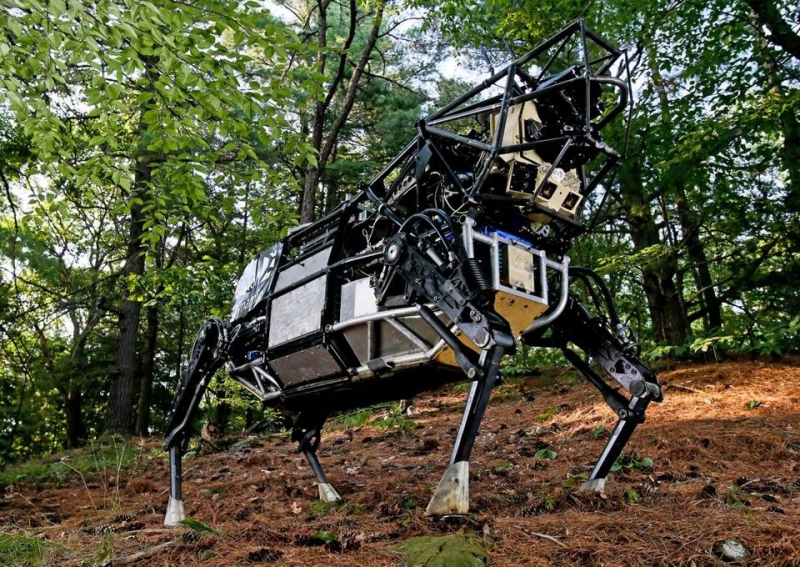The day when robots make up part of the US military may be further away than first thought. Following an extended test period during the "Rim of the Pacific" military exercise last year, the Legged Squad Support System project, or LS3, is being shelved. The reason? They're just far too noisy.
Created by Boston Dynamics before the company was bought by Google in 2013, LS3, more popularly known as 'AlphaDog,' is a flexible, agile robot capable of carrying up to 400 pounds of equipment on its back. The machine could run 24 hours straight on a 20-mile mission across rough terrain, taking visual and verbal cues from soldiers to find its way. Unfortunately, one attribute AlphaDog lacks is stealthiness, especially as it uses a gas-powered engine that some claim sounds like an angry swarm of bees.
"As Marines were using it, there was the challenge of seeing the potential possibility because of the limitations of the robot itself," said Kyle Olson, a spokesman for the Marine Corps Warfighting Lab. "They took it as it was: a loud robot that's going to give away their position."
Although it first appeared in 2008, it was 2012 when DARPA commissioned Boston Dynamics, with a $32 million contract, to build an AlphaDog that could be used by the US military. This version was more resistant to gunfire, able to carry more weight, and quieter than its predecessor. But not quiet enough, it seems.
Under the same DARPA contract, Boston Dynamics created a less noisy, electrically-powered four-legged robot called Spot. While it was much stealthier than AlphaDog, Spot needed to be controlled by a driver at all times and was only able to carry about 40 pounds of equipment, meaning it wasn't much use to the military.
"I see Spot right now as more of a ground reconnaissance asset," Captain James Pineiro, the Ground Combat Element branch head for the Warfighting Lab, told Military.com. "The problem is, Spot in its current configuration doesn't have the autonomy to do that. It has the ability to walk in its environment, but it's completely controller-driven."
The retirement of L3 and Spot doesn't mean an end to the military's experiments with robots. A spokesperson said that the marine corps recognizes "the necessity of autonomous, unmanned, and robotic capabilities" to gain a "tactical edge through technological overmatch."
